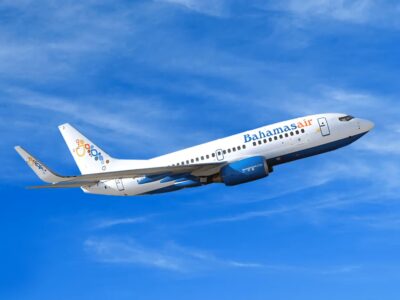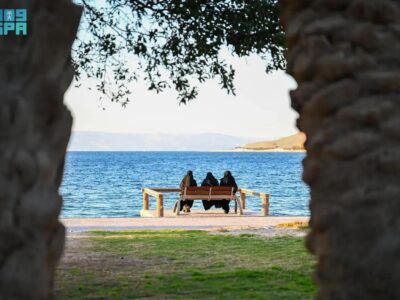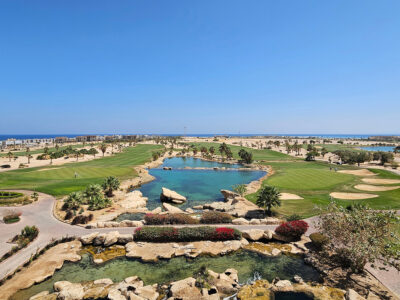While international tourism had been growing over the past five years in Ras Al Khaimah, the emirate experienced a surge in local tourism starting last year when coronavirus prevented UAE residents from traveling abroad.
RAK’s residential real estate market also saw an increase in demand as the country’s residents took advantage of remote working to spend time in a more relaxed environment, said Benoy Kurien, Group CEO of Al Hamra, real estate developer, services provider, and investment company in Ras Al Khaimah.
“Every situations offers both challenges and opportunities. The challenge was that because of the restrictions on international travel, foreign tourism became almost nil. We had to be nimble and try to make ourselves attractive for the business within the country,” said Kurien.
“But the fact that travel was restricted meant that people who would have otherwise travelled out of the country during the summer were forced to stay in it and so we became the natural choice for a getaway for them,” he continued.
Al Hamra owns 1,000 hotel rooms out of the 5,000 rooms in RAK and two of the five big malls in the emirate. The group also deals with premium real estate developments.
 Benoy Kurien, Group CEO of Al Hamra
Benoy Kurien, Group CEO of Al Hamra
“Because people could work from home, it meant they could work from Dubai or hotel rooms in RAK so what we saw was a surge in the number of visitors coming to RAK and staying here for months. That share of business really spiked during the fourth quarter of last year which offset some of our losses from international tourism,” explained Kurien.
While previously Kurien had expected the international tourism industry to recover by the beginning of next year, the third wave of coronavirus some countries are experiencing have made him push forward his forecast to end of 2022 or early 2023. He said Al Hamra will continue its investments and development in RAK’s real estate and hospitality sectors during that time.
When Kurien first came to RAK 22 years ago, the first big mall was being built and there were only two hotels in the emirate but tourism was evolving even then. The past five years (prior to the pandemic) had seen a surge in international tourism in RAK following big investments from the tourism authority to capitalise on the emirate’s setting amidst the mountains, explained Kurien.
“We built on the natural advantage that we have in RAK in the investments that we made, whether public or private sectors, and that has enhanced the emirate’s leisure reputation and accelerated tourism’s rate of growth over the past five years,” said Kurien.
“The leadership was very committed to the development of tourism. They early on realised that there is no point in becoming a very busy emirate and that it is better to take advantage of the fact that we are leisurely and relaxed and use that to create a story that complements the surrounding emirates,” he continued.
Al Hamra introduced an initiative, Live & Work, last December (and a second phase in February) which offers investors a 12-year UAE residency and business license on purchase of ready-to-move-in home in Ras Al Khaimah. The starting price for small units was AED 292,000 and Kurien said those have been sold out already and the prices are now going up.
“The goal from a real estate perspective was for us to liquidate our remaining inventory, especially the smaller units. This became very attractive for investors who were looking for visas and licenses because they could buy a house at the same time and use it as their holiday home or rent it out,” explained Kurien.
“We believe the easing up of visa regulations and the new residency schemes being introduced more frequently in the country will attract a lot of people. If that is bundled with real estate at a very reasonable price, it will appeal to a large segment of the upper-middle class who want to own their homes in this country,” he continued.





